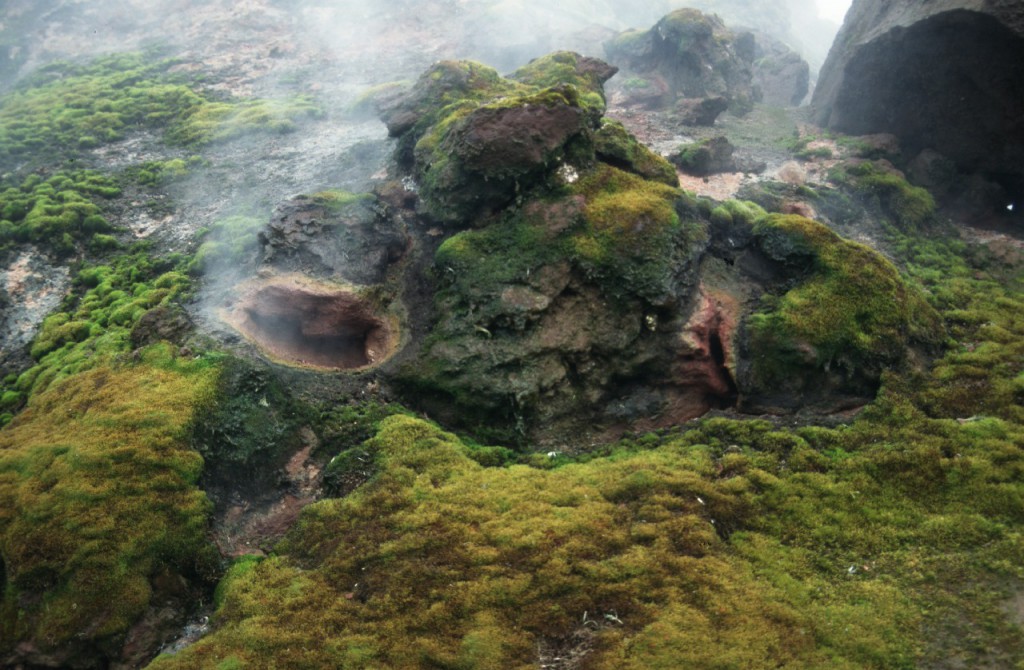New research suggests that life survived past ice ages with the help of volcanoes.

An international collaboration, including scientists from the British Antarctic Survey, has found new evidence that the steam and heat from volcanoes and heated rocks may have allowed plants and animals to survive periods in the past when much of the landscape was covered by ice.
The findings help scientists understand how species respond to climate change and could guide future conservation efforts.
The international research team studied vast records of Antarctic species collected over decades by hundreds of researchers. They found that there are more species close to volcanoes, and fewer further away, suggesting that some species took refuge there and have been gradually moving away since the last ice age.
Steam and heat from volcanoes can melt large ice caves under the glaciers, or keep small areas of ground ice-free, as well as providing a much warmer environment than in the general frozen region. This could solve the long-running mystery of how some species survived in parts of the planet covered by glaciers.
Co-author Professor Peter Convey from the British Antarctic Survey explains;
“Nearly 60% of Antarctic invertebrate species are found nowhere else in the world but Antarctica. They have clearly not arrived on the continent recently, but must have been there for millions of years. How they survived past ice ages – the most recent of which ended less than 20,000 years ago – has long puzzled scientists.”
The findings can help scientists understand how species survived past ice ages in other icy regions across the globe, including in periods when it is thought there was little or no ice-free land on the planet.
According to lead author Dr Ceridwen Fraser from the Australian National University;
“We can learn a lot from looking at the impacts of past climate change as we try to deal with the accelerated change that humans are now causing.”
Identifying where the ‘hotspots’ of diversity are will also help guide conservation efforts to protect against the environmental changes affecting Antarctica.
The findings are published in the Proceedings of the National Academy of Sciences.
The study was supported by Australian Research Council funding.
Read the paper: Geothermal activity helps life survive glacial cycles
